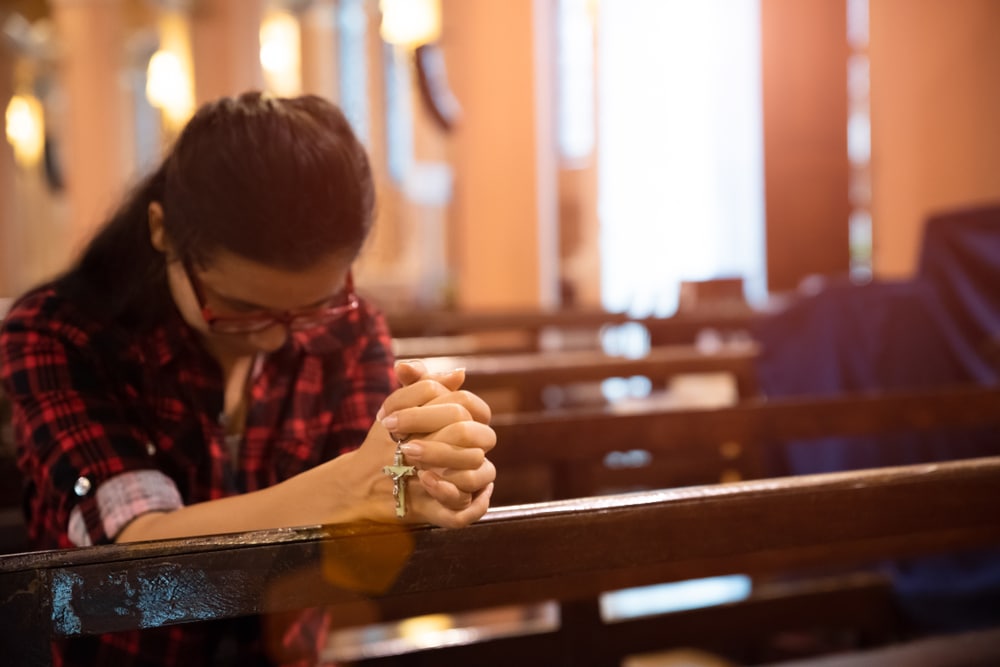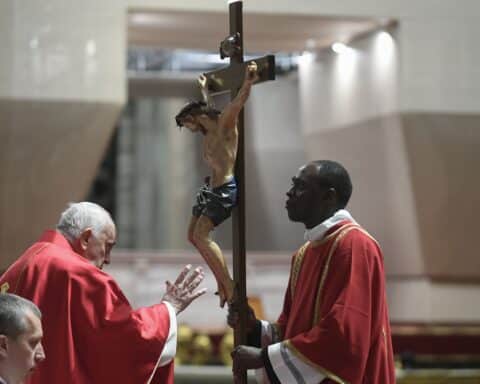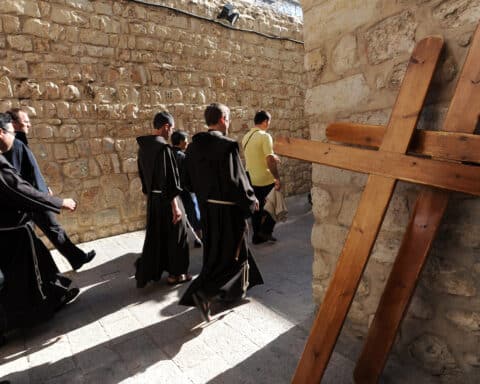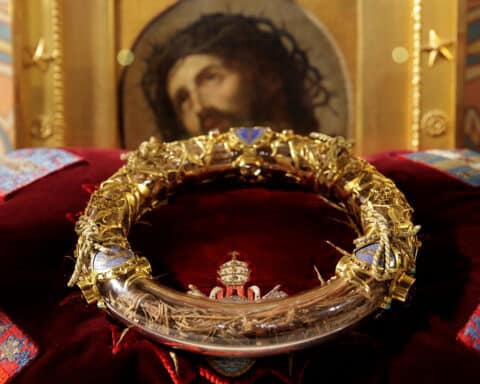I can’t be alone in having felt that I already made a mess of Lent, only a day into it. I’m pretty sure that’s a massive invitation to understanding the nature of God’s mercy. As Pope Francis said on his first Sunday as pope, we may tire of asking God for his mercy, but he never tires of giving it to us. And so, we begin again, as Venerable Father Bruno Lanteri, founder of the Oblates of the Virgin Mary, would put it. Read his biography by Father Timothy Gallagher, or find the Litany to Begin Again or other prayers Father Gallagher has translated. “That I may begin immediately; that I may never fail to begin again.”
I keep thinking of the Christmas homily of Pope Leo the Great in the Liturgy of the Hours annually at Christmas. It reads: “Christian, remember your dignity, and now that you share in God’s own nature, do not return by sin to your former base condition. Bear in mind who is your head and of whose body you are a member. Do not forget that you have been rescued from the power of darkness and brought into the light of God’s kingdom.”
He continues: “Through the sacrament of baptism, you have become a temple of the Holy Spirit. Do not drive away so great a guest by evil conduct and become again a slave to the devil, for your liberty was bought by the blood of Christ.”
That’s an awesome reality, more real than much of what we can find ourselves occupied with during a given day. Lent is a time to let God melt away anything that is not worthy of the dignity of a Christian. That’s what reconciliation is all about — so we can come to live the lives we are called to by baptism.
On Ash Wednesday, an EWTN reporter asked President Joe Biden about his position on abortion while displaying ashes on his forehead. He replied that he was not going to get into a debate about theology. That response only makes sense in a culture where Catholicism is considered more of a cultural relic — the stuff of Notre Dame football games — than a real, living, rigorous, transformational creed. And that all is above all of our pay grades. Even the institutional Church in many ways has lost its religion — legal and financial realities make operating as a ministry sometimes secondary to what the lawyers and the financial advisers say.
What are we going to do about that? Pray. Pray that each one of us can live the Faith to the fullest. And with joy, may we show why following the Commandments, living interiorly, and exteriorly seeking union with God, radiates his love in all we do and everyone we encounter. That interior work is what Lent is all about; it’s more than making sure we don’t eat meat on Fridays. But to the extent that we’ve all blended in with the culture, we can forget this in the busyness of our days. Lent is a time to prioritize and set in motion a life that is more conformed to what Jesus asks of us: living as he did.
In his Ash Wednesday homily, Pope Francis said: “Prayer, charity and fasting are not medicines meant only for ourselves but for everyone: They can change history. First, because those who experience their effects almost unconsciously pass them on to others; but above all, because prayer, charity and fasting are the principal ways for God to intervene in our lives and in the world. They are weapons of the spirit.”
He went on to implore us to pray for Ukraine in a particular way — for peace. We won’t have peace anywhere until we fight for the peace God wants to give us this Lent — to truly come to a deeper understanding of who he is and who we are in him. Then we might just come to make the beatitudes known by the way we live. Then people may see that believers do believe in Jesus Christ and what he came to do for us for eternity.
Join me in beginning Lent again? Again.
Kathryn Jean Lopez is a senior fellow at the National Review Institute and editor-at-large of National Review.





